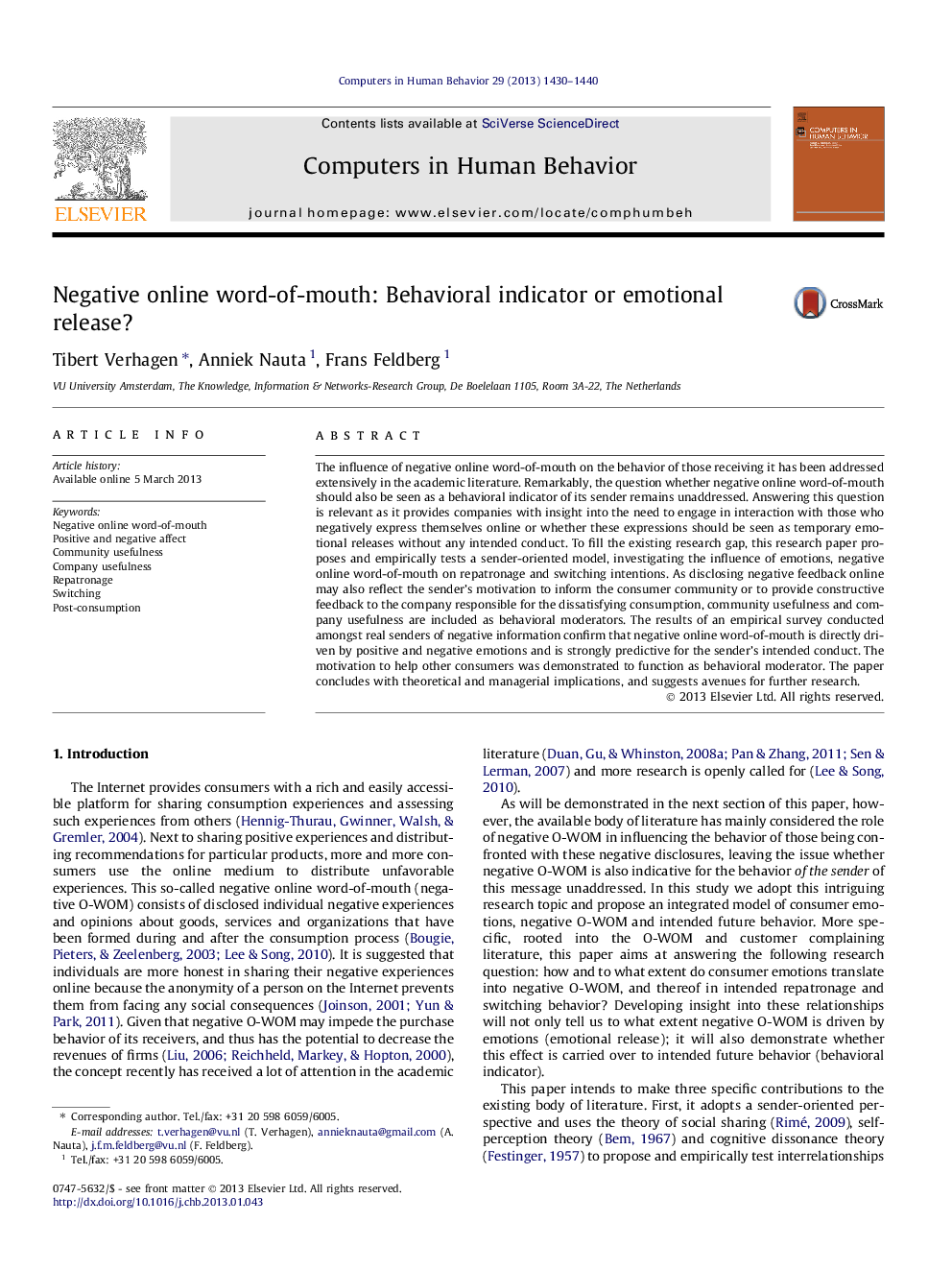| Article ID | Journal | Published Year | Pages | File Type |
|---|---|---|---|---|
| 351042 | Computers in Human Behavior | 2013 | 11 Pages |
The influence of negative online word-of-mouth on the behavior of those receiving it has been addressed extensively in the academic literature. Remarkably, the question whether negative online word-of-mouth should also be seen as a behavioral indicator of its sender remains unaddressed. Answering this question is relevant as it provides companies with insight into the need to engage in interaction with those who negatively express themselves online or whether these expressions should be seen as temporary emotional releases without any intended conduct. To fill the existing research gap, this research paper proposes and empirically tests a sender-oriented model, investigating the influence of emotions, negative online word-of-mouth on repatronage and switching intentions. As disclosing negative feedback online may also reflect the sender’s motivation to inform the consumer community or to provide constructive feedback to the company responsible for the dissatisfying consumption, community usefulness and company usefulness are included as behavioral moderators. The results of an empirical survey conducted amongst real senders of negative information confirm that negative online word-of-mouth is directly driven by positive and negative emotions and is strongly predictive for the sender’s intended conduct. The motivation to help other consumers was demonstrated to function as behavioral moderator. The paper concludes with theoretical and managerial implications, and suggests avenues for further research.
► Negative O-WOM is strongly predictive for the intended future conduct of its sender. ► Both negative and positive emotion trigger negative O-WOM. ► Negative O-WOM functions as mediator between emotion and intended behavior. ► Community usefulness reinforces the influence of negative O-WOM on intended sender behavior.
